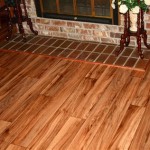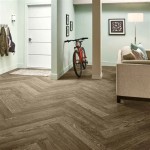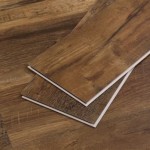Essential Aspects of Installing Engineered Wood Flooring Over Concrete Slabs
Engineered wood flooring, known for its warmth and durability, is a popular choice for homes and businesses with concrete slabs as subfloors. Installing this type of flooring over concrete requires careful preparation and precise execution to ensure a successful outcome.
1. Moisture Control
Concrete slabs are inherently moisture-prone, and excessive moisture can damage the wood flooring. Before installing, it's crucial to check for moisture content using a moisture meter. If the moisture level exceeds 12%, a moisture barrier must be installed to prevent moisture from seeping into the wood.
2. Leveling the Subfloor
Uneven concrete slabs can cause the wood flooring to buckle or squeak. To ensure a flat surface, sand or grind down any high spots and fill in depressions with self-leveling compound. This step is essential for a smooth and stable installation.
3. Underlayment
An underlayment layer provides cushioning, reduces noise, and helps distribute weight evenly. Choose an underlayment designed for use with engineered wood flooring over concrete slabs. Install the underlayment according to the manufacturer's instructions, ensuring that it completely covers the subfloor.
4. Acclimation
Before installing the wood flooring, it must acclimate to the temperature and humidity of the room where it will be placed. Typically, this takes 2-3 days. Store the flooring horizontally in unopened packages and allow it to adjust to the new environment before installation.
5. Float Installation Method
The most common installation method for engineered wood flooring over concrete slabs is the floating installation. In this method, the planks are not nailed or glued to the subfloor but are held together by a locking system. The flooring is allowed to float freely over the underlayment, accommodating for expansion and contraction due to temperature and humidity changes.
6. Expansion Gap
All around the perimeter of the flooring, an expansion gap must be maintained to prevent buckling. Use spacers or a gap tool to ensure a consistent distance from walls, baseboards, and other obstacles.
7. Finishing Touches
Once the wood flooring is installed, cut moldings or baseboards to fit and install them around the perimeter to conceal the expansion gap. Lightly sand the baseboards if necessary to ensure a smooth surface for the flooring to rest on.
Conclusion
By following these essential steps, you can successfully install engineered wood flooring over concrete slabs. Proper moisture control, subfloor preparation, underlayment installation, acclimation, float installation method, expansion gap maintenance, and finishing touches are crucial for a durable and aesthetically pleasing flooring that will enhance the beauty and functionality of your space.

How To Install Tongue Groove Hardwood Floors Over Concrete

Installing Engineered Hardwood On Concrete Villagio Guide

How To Install Engineered Flooring On Concrete Adm

How To Install Engineered Wood Flooring On Concrete

How To Install Engineered Wood Flooring On Concrete

Hardwood Over Concrete Auten Wideplank Flooring

How To Install Engineered Wood Flooring On Concrete

Installing Wood Subfloors Over Concrete Hardwood Floors

Fitting Hardwood Floor To Concrete Wood And Beyond Blog

How To Install Hardwood Floors On Concrete Slab Easyklip Easiklip
Related Posts








